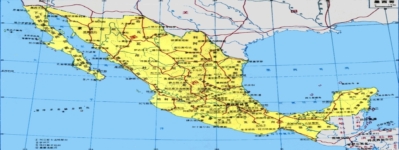Resilient Nation, Rising Influence Tracking Key Developments in nigeria news and the Pursuit of Sust
- Resilient Nation, Rising Influence: Tracking Key Developments in nigeria news and the Pursuit of Sustainable Growth.
- Economic Transformation and Diversification
- Political Landscape and Governance
- Security Challenges and Regional Stability
- Technological Advancements and Digital Economy
- Social Development and Human Capital
- The Future Outlook for Nigeria
Resilient Nation, Rising Influence: Tracking Key Developments in nigeria news and the Pursuit of Sustainable Growth.
Recent developments across various sectors in nigeria news paint a complex picture of a nation striving for sustainable growth amidst ongoing challenges. From economic reforms and political shifts to advancements in technology and social initiatives, understanding the key trends is crucial for investors, policymakers, and anyone interested in the future of this dynamic African nation. This article delves into these crucial aspects, offering an in-depth analysis of nigeria news and its implications for the country’s trajectory.
Nigeria, with its vast population and abundant resources, holds immense potential. However, realizing this potential requires navigating a multifaceted landscape of economic volatility, infrastructural deficits, and socio-political complexities. Examining these areas thoroughly provides insight into the ongoing efforts to foster stability and progress.
Economic Transformation and Diversification
Nigeria’s economy has traditionally been heavily reliant on oil exports. However, recognizing the vulnerability of this dependence, there’s been a concerted effort towards diversification. This involves promoting growth in non-oil sectors, such as agriculture, manufacturing, and services. These initiatives aim to create a more resilient and sustainable economic foundation. Recent policies implemented by the government include tax incentives for businesses investing in non-oil sectors and increased funding for agricultural programs designed to boost local production and reduce reliance on imports. The success of these efforts will be critical for long-term economic stability.
However, significant hurdles remain. Infrastructural deficits, including inadequate power supply and transportation networks, continue to constrain economic growth. Corruption and bureaucratic inefficiencies also pose considerable challenges. Addressing these issues requires sustained investment, strengthened institutions, and a commitment to transparency and accountability.
| Agriculture | 23.2% | 3.5% |
| Industry | 26.7% | 4.1% |
| Services | 50.1% | 2.8% |
| Oil Sector | 9.9% | -12.6% |
Political Landscape and Governance
The political landscape in Nigeria is characterized by a multi-party system and regular elections. While democratic processes have been strengthened in recent years, challenges remain in ensuring free and fair elections and upholding the rule of law. Political stability and good governance are essential for attracting investment, fostering economic growth, and promoting social cohesion. Addressing issues such as electoral violence and corruption within the political system are crucial for building public trust and ensuring effective governance.
Recent legislative developments consistently aim toward consolidating various institutions. The implementation of reforms within the judiciary, electoral commission, and anti-corruption agencies is paramount to bolstering public confidence and maintaining a healthy democratic practice. These measures reflect a dedicated commitment to strengthening transparency and accountability across all government levels.
Security Challenges and Regional Stability
Nigeria faces various security challenges, including terrorism, banditry, and communal conflicts. These challenges pose a significant threat to peace and stability, particularly in the northern and northeastern regions of the country. The ongoing conflict with Boko Haram and other extremist groups has resulted in widespread displacement and humanitarian crises. Addressing these security challenges requires a multi-pronged approach, including strengthening security forces, addressing the root causes of conflict, and promoting dialogue and reconciliation.
Regional cooperation is also essential in tackling these challenges. Nigeria plays a leading role in regional security initiatives, working with neighboring countries to combat terrorism and transnational crime. However, further strengthening regional partnerships and addressing underlying socio-economic grievances are necessary to achieve lasting peace and stability.
Technological Advancements and Digital Economy
Nigeria is experiencing rapid technological advancements and the growth of a vibrant digital economy. The country has a large and youthful population that is highly receptive to new technologies, driving demand for digital services and innovations. The rise of fintech companies is transforming the financial sector, providing access to financial services for millions of previously unbanked individuals. E-commerce is also rapidly growing, creating new opportunities for businesses and consumers.
Despite this growth, significant challenges remain. Limited access to internet infrastructure, particularly in rural areas, and a lack of digital literacy skills hinder the full realization of the digital economy’s potential. Addressing these issues requires increased investment in infrastructure, skills development, and regulatory frameworks that promote innovation and competition.
- Increasing access to high-speed internet.
- Promoting digital literacy and skills development.
- Creating a favorable regulatory environment for fintech companies.
- Investing in cybersecurity infrastructure.
Social Development and Human Capital
Investing in social development and human capital is crucial for Nigeria’s long-term progress. Education and healthcare are fundamental to improving the quality of life for all Nigerians and unlocking the country’s potential. However, significant challenges remain in providing access to quality education and healthcare services, particularly in rural areas. The education system suffers from inadequate funding, dilapidated infrastructure, and a shortage of qualified teachers. The healthcare system faces similar challenges, including limited access to healthcare facilities, a shortage of healthcare professionals, and a high burden of disease.
Addressing these challenges requires increased investment in education and healthcare, as well as reforms to improve the efficiency and effectiveness of these sectors. Strengthening partnerships with the private sector and civil society organizations can also play a vital role in delivering quality social services.
- Improve access to quality education at all levels.
- Expand healthcare coverage and improve healthcare infrastructure.
- Address social inequalities and promote inclusive growth.
- Strengthen social safety nets to protect vulnerable populations.
The Future Outlook for Nigeria
Nigeria stands at a pivotal juncture. The country possesses immense potential, but realizing this potential requires overcoming significant challenges. The success of ongoing economic reforms and efforts to diversify the economy will be critical for ensuring sustainable growth. Strengthening governance, improving security, and investing in human capital are also essential for building a more prosperous and stable future.
The coming years will be crucial for Nigeria as it navigates a rapidly changing global landscape. With a determined and strategic approach, Nigeria has the capacity to overcome its challenges and emerge as a leading force in Africa and beyond. Continued innovation in crucial sectors and dedication to improvement suggests a trajectory toward socioeconomic advancement.
| Inadequate Infrastructure | Increased investment in infrastructure projects | 5-10 years |
| Corruption | Strengthened institutions and anti-corruption measures | Ongoing |
| Security Threats | Enhanced security forces and regional cooperation | Ongoing |
| Economic Diversification | Promoting non-oil sectors and attracting investment | 5-10 years |









